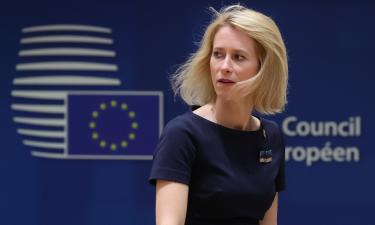Explosions Become Part of Everyday Life
Observers commented on the high professionalism of the Moscow police at Tushino
Explosions in Moscow's Tushino did not become a national tragedy. They did not become a great tragedy even for Moscow - a huge city, in which entertainment events continued the next day. Nobody canceled the beer festival in Luzhniki, although there were not many people present at the festival. However, some people came to Luzhniki to have a beer or two - they probably believed that a shell does not hit the same shell-hole twice. 
Television channels reported the act of terrorism in Tushino, but news reports differed a lot from the ones that were broadcast after previous horrific acts of terrorism in Moscow (explosions of apartments buildings or the hostage crisis). The powers-that-be do not want another hostage siege to happen, so any comparison to the Moscow tragedy in October of 2002 is inappropriate. It is practically impossible to stop a suicide bomber - all experts, both Russian and foreign share the same opinion on the subject.
There can be one conclusion on Saturday incident: one should be prepared for new acts of terrorism. Statesmen are saying this openly: if a suicide bomber wants to blew up a bomb, he/she will do so. In other words, pray when you go to a theatre, shudder when you stand in a line to buy tickets. God will help, but not the state. The maximum thing that the state can do is to substitute targets - police officers will die instead of civilians.
"That was the first time, when the whole country saw, that at least something could be done to prevent terrorism to a certain extent. There are casualties, but there is nothing to justify their deaths. A match was struck very close to a powder keg, but the keg remained safe. This miracle can be explained both with the divine intent and the professionalism of the Moscow police, although everybody has been disillusioned about it," the Gazeta newspaper wrote. "The police were surprising for their coordinated and proper work," - the newspaper said, having stressed the tranquility of the police, which calmed people down to a certain extent.
The Vremya Novostey wrote, "many observers, even ardent criticizers of the Russian police had to acknowledge the professionalism of the Moscow Internal Affairs administration." "Despite harsh accusations of cynicism, police officers did their best not to let the vast majority of rock show spectators hear the blasts. Nobody in the audience knew that dozens of ER vehicles were taking injured people and dead bodies to hospitals and morgues. Furthermore, it was the police that insisted on the continuation of the rock festival to evacuate people quietly, without any panic," the newspaper wrote.
"Most likely, law enforcement bodies will soon report how many suspects they have managed to detain. Interior Minister Boris Gryzlov said, special services would also be involved in the investigation, but the executors of the terrorist act are dead, so it is impossible to find the organizers," the Nezavisimaya Gazeta wrote. The newspaper recollected another recent corruption scandal to prove the weakness of the police - the scandal connected with "werewolf ring" in the Moscow Criminal Investigation Department. "Those people, specialists of the illegal weapons trafficking, investigated recent acts of terrorism - explosions near the McDonald's restaurant in Moscow and the hostage crisis in the autumn of 2002," the newspaper wrote.
Moscow authorities decided to check basements and lofts in the Moscow residential sector. Deputy Moscow Mayor Pyotr Aksenov has already instructed communal services of the city about it. A source at the city administration told Interfax on Monday, the decision had been made in connection with an opportunity of new acts of terrorism to take place in Moscow.
Subscribe to Pravda.Ru Telegram channel, Facebook, RSS!




